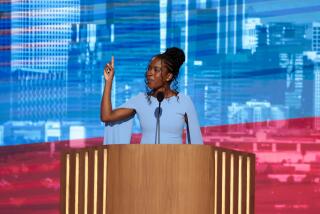Alan Paton in Heaven, Reading
- Share via
There are many American novelists, poets and philosophers whose work I have admired. I would not like to say they influenced me, because my own life and writing might by some be regarded to be poor evidence for such a statement. But I once wrote a poem to Walt Whitman which ended with the lines:
So now, great brother, I am ready to sing now.
These songs shall be presented to you
And what does it matter if they are unworthy,
If they are not so gay and sorrowful as I thought
For I have a feeling to give them to you,
I, not really a stranger, have a desire to speak to you
And why not speak to you with these?
I can never read unmoved those lines:
When lilacs last in the dooryard bloomed,
And the great star early dropped in the western sky in the night,
I mourned, and yet shall mourn with ever-returning spring.
And the man whom he mourned, the great Abraham Lincoln, who would not be regarded as novelist or poet, and certainly not as a systematic philosopher, was one of the great masters of the English language.
Of Emerson, Hawthorne, James, Melville, I would not dare to write now; they belong to my youth. Does one ever read again the books of one’s youth? Wouldn’t it be better to go back to them when one’s time is running short? Or to Faulkner, Hemingway, Dos Passos, Bellow, and others of a gifted company. Or Thomas Wolfe, the millionaire of words . . . .
Like many readers of my age, I have passed into the realm of biography, autobiography, history--and that literature that deals with the just re-ordering of society, especially my own--with damned politics.
In heaven I shall ask to be excused the harp so that I can read all these things again.
More to Read
Sign up for our Book Club newsletter
Get the latest news, events and more from the Los Angeles Times Book Club, and help us get L.A. reading and talking.
You may occasionally receive promotional content from the Los Angeles Times.








